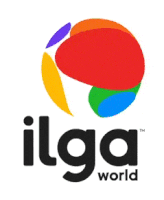
The International Lesbian, Gay, Bisexual, Trans and Intersex Association (ILGA) is a LGBTQ+ rights organization.
The human rights situation in Cambodia is facing growing criticisms both within the country and from an increasingly alarmed international community. After a series of flagrant violations against basic human rights a feeling of incertitude regarding the direction the country is emerging, sometimes comparing the situation to a newborn Burma.
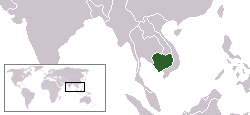
Lesbian, gay, bisexual, and transgender (LGBT) people in Cambodia face legal challenges not experienced by non-LGBT residents. Although same-sex sexual activity is legal in Cambodia, it provides no anti-discrimination protections for LGBT people, nor does it prohibit hate crimes based on sexual orientation and gender identity.

Lesbian, gay, bisexual, and transgender (LGBT) rights in Australia rank among the highest in the world; having significantly advanced over the latter half of the 20th century and early 21st century. Opinion polls and the Australian Marriage Law Postal Survey indicate widespread popular support for same-sex marriage within the nation. A 2013 Pew Research poll found that 79% of Australians agreed that homosexuality should be accepted by society, making it the fifth-most supportive country surveyed in the world. With its long history of LGBT activism and annual Gay and Lesbian Mardi Gras festival, Sydney has been named one of the most gay-friendly cities in the world.
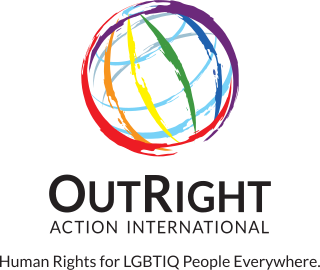
OutRight International (OutRight) is an LGBTIQ human rights non-governmental organization that addresses human rights violations and abuses against lesbian, gay, bisexual, transgender and intersex people. OutRight International documents human rights discrimination and abuses based on their sexual orientation, gender identity, gender expression and sex characteristics in partnership with activists, advocates, media, NGOs and allies on a local, regional, national and international level. OutRight International holds consultative status with ECOSOC.
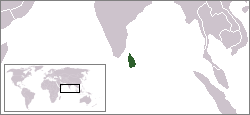
Lesbian, gay, bisexual, and transgender (LGBT) people in Sri Lanka face significant challenges not experienced by non-LGBT residents.

Discussions of LGBT rights at the United Nations have included resolutions and joint statements in the United Nations General Assembly and the United Nations Human Rights Council (UNHRC), attention to the expert-led human rights mechanisms, as well as by the UN Agencies.

Oceania is, like other regions, quite diverse in its laws regarding LGBT rights. This ranges from significant rights, including same-sex marriage – granted to the LGBT+ community in New Zealand, Australia, Guam, Hawaii, Easter Island, Northern Mariana Islands, Wallis and Futuna, New Caledonia, French Polynesia and the Pitcairn Islands – to remaining criminal penalties for homosexual activity in six countries and one territory. Although acceptance is growing across the Pacific, violence and social stigma remain issues for LGBT+ communities. This also leads to problems with healthcare, including access to HIV treatment in countries such as Papua New Guinea and the Solomon Islands where homosexuality is criminalised.
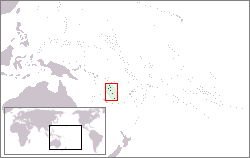
Lesbian, gay, bisexual, and transgender (LGBT) persons in Vanuatu may face legal challenges not experienced by non-LGBT residents. Same-sex sexual activity is legal, but households headed by same-sex couples are not eligible for the same legal protections available to opposite-sex married couples.

Lesbian, gay, bisexual, and transgender (LGBT) people in Micronesia may face legal difficulties not experienced by non-LGBT residents. Households headed by same-sex couples are not eligible for the same legal protections available to opposite-sex married couples, as same-sex marriage and civil unions are not recognized. Discrimination on the basis of sexual orientation has been illegal since 2018.
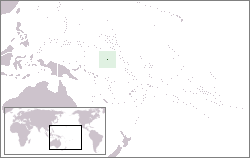
Lesbian, gay, bisexual, and transgender (LGBT) people living in Nauru may face legal and social challenges not experienced by non-LGBT residents. Same-sex sexual activity has been legal since May 2016, but there are no legal recognition of same-sex unions, or protections against discrimination in the workplace or the provision of goods and services.

The majority of the countries of the Commonwealth of Nations, formerly known as the British Commonwealth, still criminalise sexual acts between consenting adults of the same sex and other forms of sexual orientation, gender identity and expression. Homosexual activity remains a criminal offence in 29 of the 56 sovereign states of the Commonwealth; and legal in only 26.

Intersex Human Rights Australia (IHRA) is a voluntary organisation for intersex people that promotes the human rights and bodily autonomy of intersex people in Australia, and provides education and information services. Established in 2009 and incorporated as a charitable company in 2010, it was formerly known as Organisation Intersex International Australia, or OII Australia. It is recognised as a Public Benevolent Institution.

Equal Ground is a non-profit advocacy organization based in Colombo, Sri Lanka, that campaigns for political, social and civilian rights for lesbian, gay, bisexual, transgender (LGBT), intersex and queer individuals. The organization, established in 2004, is one of the first organization in Sri Lanka welcoming and advocating equality for people of all sexual orientations and gender identities.

Intersex people are born with natural variations in physical and sex characteristics including those of the chromosomes, gonads, sex hormones, or genitals that, according to the UN Office of the High Commissioner for Human Rights, "do not fit the typical definitions for male or female bodies". Such variations may involve genital ambiguity, and combinations of chromosomal genotype and sexual phenotype other than XY-male and XX-female. Preimplantation genetic diagnosis allows the elimination of embryos and fetuses with intersex traits and thus has an impact on discrimination against intersex people.
Sexual minorities in Sri Lanka have been counted in recent times as consisting of as little as 0.035% of the population to as high as 19.6%. It is likely that there are around 1,100,000 according to current mapping conventions.
The history of sexual minorities in Sri Lanka covered in this article dates back to a couple of centuries before the start of the Vikram Samvat era, although it is highly likely that archaeology predating this period exists. There are virtually zero historical records of sexual minorities in the Latin script dating prior to colonialism. The concept of Sri Lanka did not exist prior to colonialism, and the term 'lanka' translates to 'island'.
Homosexuality in Sri Lanka consists of males who have homosexual sex with other males on the island-state of Sri Lanka. It also references the history of homosexual sex on the island during its history as Ceylon and as part of various continental kingdoms during pre-colonial times.














